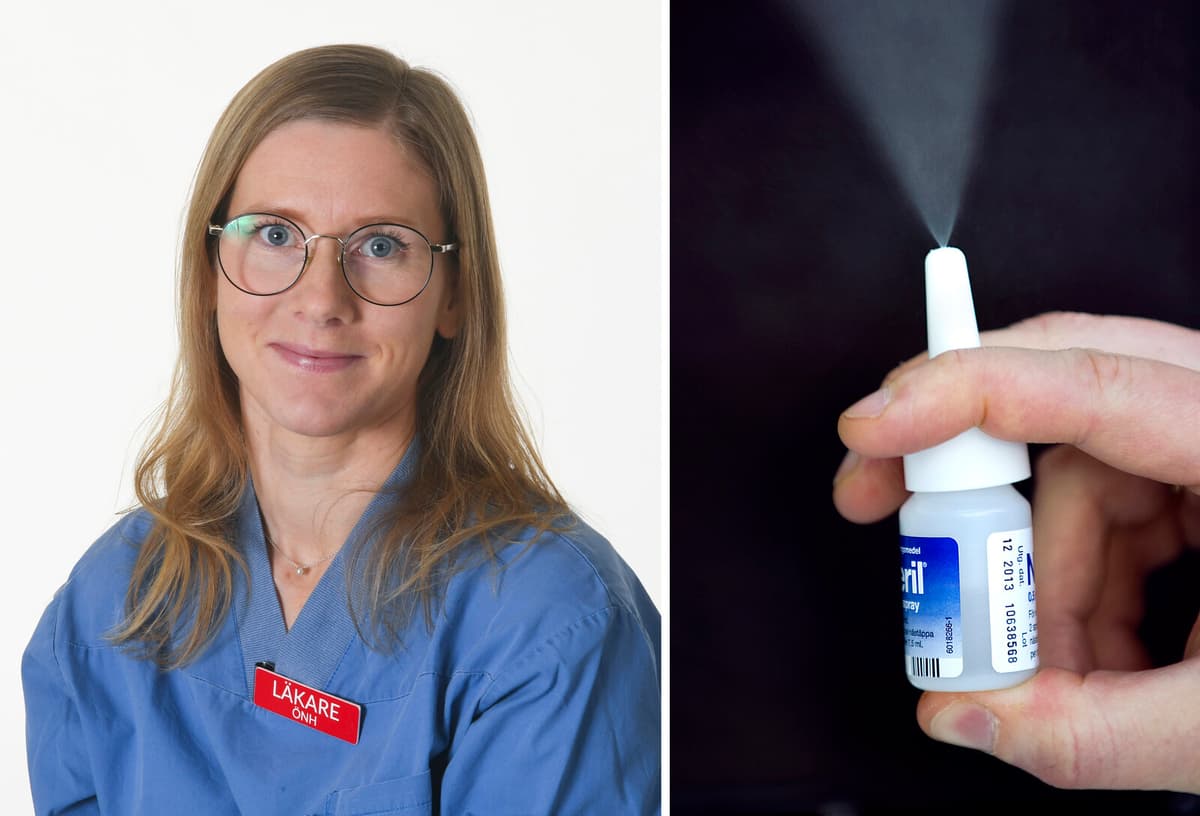In her work at the ear, nose, and throat clinic at Sunderby Hospital, Elin Zingmark often meets patients who have become dependent on decongestant nasal sprays.
A Sifo survey commissioned by Apotek Hjärtat simultaneously shows that twelve percent of Swedes use decongestant nasal sprays several times a month, and of these, half claim to be dependent.
If you've only used it for about a week, maybe ten days, it's easy to get hooked on nasal spray dependence, says Elin Zingmark.
When you take the nasal spray, the blood vessels in the nasal mucosa constrict. This makes more room in the nose, and it becomes easier to breathe. The problem is that the vessels get used to the nasal spray and swell up immediately when you stop using it.
It's like a rebound, says Zingmark.
Step down with children's spray
Even though the dependence is troublesome and expensive for the individual, it's not a dangerous addiction like other abuses. And it's possible to get rid of your troubles.
I usually say that it will be stuffy in the nose for a few days and it will be tough to both eat and sleep. When you close your mouth, you can hardly breathe.
This usually lasts for a few days, sometimes up to two weeks. If it gets too tough, you can try stepping down with children's spray, which is weaker, and take it before bedtime.
Then you can try using it for just a week, not for long, and then stop completely.
Recommends saline solution
You can also try using over-the-counter cortisone spray or saline solution. The latter can be mixed yourself with a teaspoon of table salt dissolved in half a liter of lukewarm water.
I would really like to advocate for saline rinses, which you might not think of, but it's great when you have a cold. It cleans and moisturizes the nose, says Elin Zingmark.
If you've used nasal spray for more than ten days in a row, there's a high risk that you've become dependent. The general tip is to stop abruptly, and after a couple of tough nights, the problems usually ease up as the mucous membranes recover. If that doesn't work, you can try:
Switching to nasal spray with saline solution or cortisone.
Stepping down usage by using decongestant nasal sprays for children and taking them as few times as possible per day.
Seeking help from healthcare. The problem of nasal congestion may have other causes than a cold, such as allergies, deviated septum, or nasal polyps that may require treatment.






